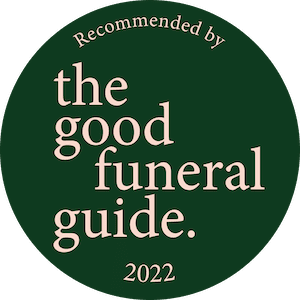While funerals are profoundly embedded within our traditions, they’re not a legal obligation. The UK government requires only two actions to be taken after someone dies: obtain a death certificate from the hospital doctor or a GP, and then register the death. A funeral is entirely optional.
In recent times, several high-profile celebrities have gained attention through their choice not to have a funeral. Anita Brookner, prolific British novelist and winner of the Man Booker Prize for her work Hotel du Lac, made her wishes clear. Her death notice in the Times addressed her last rites with the simple statement: “At Anita’s request there will be no funeral.”
David Bowie, who passed away this January, also opted to not have a funeral. His body was instead privately cremated in New York, without the presence of family or friends. This type of final ceremony, in which the coffin goes directly to the crematorium, is called a “direct cremation”.
Over 2,000 People Every Year are Now Choosing to go Without a Funeral
Catherine Powell, director of customer experience at Pure Cremation, a company that offers services throughout England and Wales, estimates that over 2,000 people every year are now choosing to go without a funeral, opting for direct cremation instead. Usually, the lack of funeral is in lieu of a “celebration of life”, a more cheerful event such as a beach party or social function. This event might be held weeks or even months after the cremation. However, some families opt for a direct cremation for financial reasons. Including transport and coffin, a direct cremation is still much more affordable than a funeral. According to Bath University, the average direct cremation costs on average £1,000, while the average funeral tallies over £3,500.
In a direct cremation, the body is moved directly from the hospital, home or hospice to the crematorium. Just as with a traditional funeral, the coffin the carried down the chapel’s aisle to the cremator, but no ceremony is held. However, families and friends can choose to be present for the coffin’s procession, and music can be chosen to be played upon the family’s request. Some family members have even chosen to sing, according to Powell. But while music may accompany the coffin’s journey down the aisle, no eulogy is heard, and no other ceremonies are performed.
Christians have also increasingly chosen the direct cremation service at Pure Cremation, and in one instance the friends and family of the deceased recited a scripture while the coffin passed through the chapel. Months later, a religious memorial ceremony was held.
Traditional Funeral Ceremonies are Becoming Less Common
Traditional funeral ceremonies, in which mourners have worn the traditional black, are becoming less common. Indeed, recent years have seen an increase in celebratory events rather than the usual somber affairs, with guests dressing up in party attire or in themed costumes from clowns, Vikings, or even as Dr Who characters. While some feel that such a celebration is no way to acknowledge the passing of a dear friend or family member, others argue that this is a true celebration of life that truly acknowledges the spirit of the departed.
A US website called “What’s Your Grief” suggests “guilt-free alternatives” to traditional funerals. Suggestions include creating a shrine in the home using a collection of photographs and meaningful objects, holding annual birthday or death anniversary memorial events, planting a tree or creating a memorial book. These can be in addition to or an alternative to traditional funerals.
The direct cremation, says Powell, isn’t “a cheap funeral” but a “simple cremation”. She says, “That’s not right for everybody, but it allows the later remembrance to be more personalised and planned. Often there’s no time for some relatives and friends to get to funerals, so it gives them a chance to attend a memorial when one takes place at a better time. It offers more flexibility. The body is the part of the funeral process that people find most difficult to deal with. This takes away that worry for people.”
Is it Important for Mourners to See the Body
In recent years, the question of whether it’s important for mourners to see the body or have the body present in the same room has become more prominent. Clinical professor of medical humanities at Baylor University, William Hoy, writes that it is becoming more common to refer to the body as “just a shell”, but he questions whether this is widely believed. Hoy describes the concept of “liminality”, an idea originating with the early-20th century anthropologist Arnold van Gennep, as that brief period of time following a death during which the bereaved aren’t sure whether to describe their loved one as being dead or alive.
The implications of liminality mean that ceremonies are crucial to helping the bereaved move from one state to the next, from seeing the deceased as an alive being to one who has passed on.
While there is no agency that keeps track of the numbers of traditional funerals, direct cremations or alternative memorial services held in the UK, the National Association of Funeral Directors estimates that out of the 480,000 annual deaths, direct cremations and other rare burial types make up less than 3% of all final rites.
Those who Choose Not to have a Funeral Usually do so for Personal Reasons
“This is largely because, despite high-profile examples such Anita Brookner and David Bowie, as a society we generally view the act of a committing a body to the ground or to the flames as a central part of the funeral service,” a spokeswoman for the association says. She goes on to acknowledge that those who choose to not have a funeral usually do so for reasons that are personal rather than financial. “While a funeral can be extremely distressing, it can also be an important part of the grieving process for those left behind”, she says, “so providing an option to allow people to come together in another way might be an important consideration in the planning process.”
In the case of Brookner, who had nursed her own mother until her death in 1969, the Bible offered her “a lot of questions and no answers”. She was a self-described pagan and an art historian by profession who would become the first woman to hold the Slade Professorship of Fine Art at Cambridge University before she became an award-winning author. Her work explored the profound social pressures and ethical dilemmas we face that shape even the most ordinary lives.
Although Brookner chose to not have a traditional funeral, it is not yet clear whether she intended for a memorial service or celebration to be held for her family, friends and countless fans.






